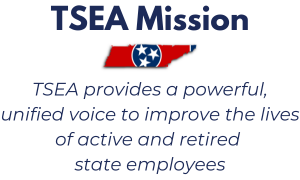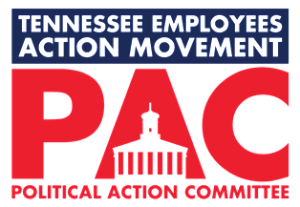Yesterday, the Haslam administration announced JLL as the winning bidder for their controversial state-wide facilities management outsourcing contract. The Haslam administration’s continued push to outsource state jobs is disappointing to TSEA. TSEA is also extremely concerned about the Haslam administration’s choice to further expand Tennessee’s relationship with JLL.
“JLL winning this contract isn’t a surprise, but it is concerning that Tennessee continues to award major multi-million-dollar taxpayer-funded contracts to the same out-of-state company who has yet to prove they are saving taxpayer money,” TSEA Executive Director Randy Stamps said. “It is no secret that Gov. Bill Haslam was an investor in JLL before he was our governor, and due to that prior affiliation, the relationship between this particular company and the Haslam administration is suspect. What we are seeing seems a lot like crony capitalism.”
JLL currently handles facilities management services at 10 percent of state buildings under a five-year $330M contract signed in 2013, which means we have an opportunity to actually measure this company’s performance before awarding an even larger, possibly multi-billion-dollar contract. Since state employees are evaluated based on performance to earn higher salaries, we believe any company seeking to take state employee jobs should also be evaluated based on their performance to earn more contracts.
We believe the state and JLL must show a true cost comparison from before and after outsourcing to prove outsourcing facilities management has actually saved taxpayer money. We believe the state comptroller is the proper person to perform such an audit.
We find it very difficult to believe that there are enough cost savings from buying soap and paper towels in bulk to allow three companies to make a profit, while keeping current employees at their existing salary and benefit package, and still save taxpayer money.
When the state conducted a third-party study of their facilities management outsourcing plan, they only studied the numbers in their existing plan. Basically, they checked their math.
What we want is a full review of the plan, including an economic impact study which shows short-term and long-term consequences from this effort, who bears the costs of outsourcing, who benefits, the impact on communities surrounding the facilities, etc.
Impact on employees
TSEA has expressed our concerns about the impact to employees from this outsourcing effort, including but not limited to the following:
Benefits such as longevity and TCRS (pension) contributions are dependent on employment with the state and would end when the state terminates the employee’s state job.
Outsourced employees will no longer be eligible to take part in the state group insurance plan, which will likely result in health insurance coverage reductions.
There are no opportunities for seasonal and part-time employees.
Some eligibility criteria are subjective for employees who wish to keep their job.
JLL under the terms of the RFP can move so-called transition employees up to 50 miles away from their existing employment site.
A brief history of Tennessee’s relationship with JLL
In January of 2012 the state paid Jones Lang LaSalle $1M to assess the condition and management of state properties.
That November, the state expanded JLL’s contract to include procuring outside leases, a job previously handled by state employees. JLL would also receive a 4-percent commission on any leases it procured.
By April 2013, funding for the contract had increased from $1M to $7.6M.
In June 2013, Tennessee signed a $330 million, five-year contract with JLL to outsource the facilities management at about 10 percent of our state buildings.
In November of 2013, the state comptroller found the state’s leasing contract with JLL “created an organizational conflict of interest whereby Jones Lang LaSalle can profit from its own planning recommendations.” After this finding, the state eventually canceled that part of the contract.
Furthermore, as reported by WTVF in Nashville, the state paid $1M in secret settlements for lease cancellations and terminating contracts, presumably a result of JLL’s advice.
In late 2016, the State Comptroller auditors found more problems with the JLL contract, but this time there was a breakdown in oversight of JLL by a division of the Department of General Services.
In conclusion
TSEA does not believe any private company can compete on a level playing field with state employees.
Tennessee already employs a smart, flexible, efficient and effective workforce, and we believe state employees offer the most effective long-term cost savings plan for Tennessee.
The cost savings included in the facilities management outsourcing proposal could easily be accomplished without relinquishing control of services and disrupting the system.
We believe the best solution to this small issue is for state government to take a conservative, common sense approach of cross-training our current workers and negotiating better deals on goods.

















